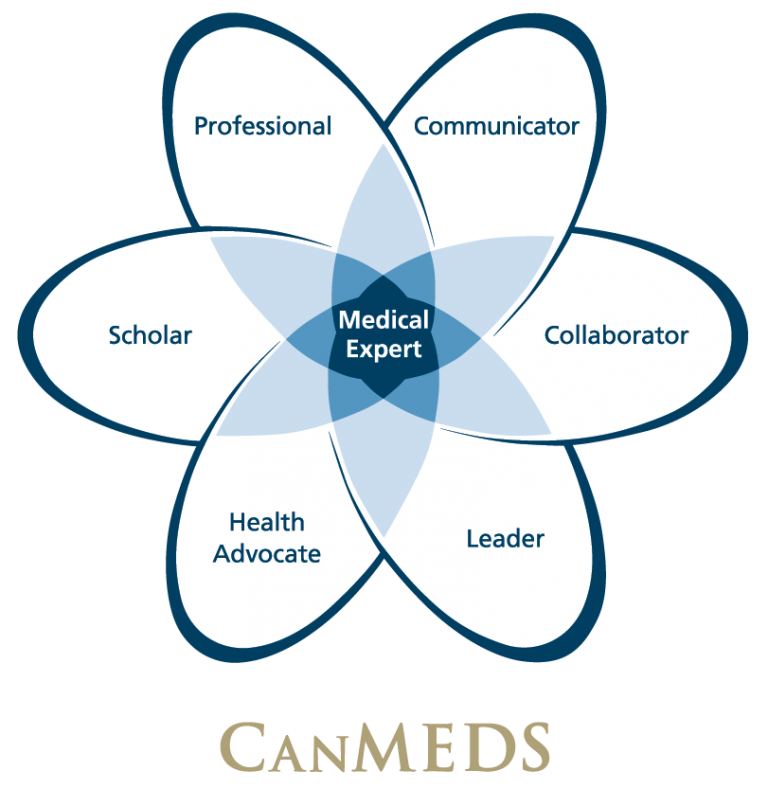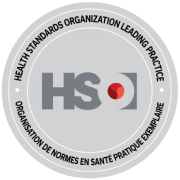Get better together
The Medical Council of Canada (MCC) offers MCC 360 to colleges, regional health authorities, hospitals and hospital departments, medical schools, clinics, teams of physicians, and individual physicians. It is uniquely developed to improve physician performance in the essential roles of communicator, collaborator, and professional. This robust multi-source feedback (MSF) tool is easy to administer and results in actionable feedback for each participating physician.
By partnering with the MCC, you tap into our vast experience in assessment and data collection. We provide full-service delivery of MCC 360 to your physicians through our supportive and transparent process.
Our model makes MSF easy
MCC 360 involves collecting feedback from multiple sources, providing support to physician participants, and producing an actionable feedback report. The MCC administers the MCC 360 process on behalf of your program as follows.
Your program identifies physician participants that are to undergo multi-source feedback (MSF) and sends participant information to the MCC.
The MCC contacts the physician participants, explains the process, and provides unique log-in details to a secure portal so they can complete their portion of the MCC 360 process.
Physician participants log in and complete a self-assessment, nominate raters (colleagues and co-workers), and provide online or paper surveys to patients.
Colleagues, co-workers, and patients answer the surveys.
The MCC monitors for completion, sends reminders, and escalates to your program as needed. Once all surveys are returned, the MCC performs data analysis and produces an MCC 360 report for each physician participant.
The physician participant receives facilitated feedback and coaching support.
Available options for feedback and coaching support
One-on-one time with a trained peer-physician coach supports physicians to view their results in an objective and constructive manner and to develop an action plan.
Coaching support delivered by the MCC
Feedback and coaching services are provided directly to your physician participants.
Training for your coaches
Training is provided for your in-house coaches on how to have impactful feedback and coaching sessions.
Supported by MCC resources
Your program can provide these services to your physician participants using MCC information and training resources.
Assessing three critical CanMEDS roles
MCC 360 is aligned with how physicians practising medicine in Canada and is anchored in the CanMEDS framework; it specifically looks at three CanMEDS roles: communicator, collaborator, and professional.
These three intrinsic roles related to patient care can be difficult to assess and when underdeveloped can be the competencies from which problems arise. Performance in these roles is best assessed by those who observe, interact, and work with physicians in practice.

© 2015 Royal College of Physicians and Surgeons of Canada
Reproduced with permission by a member of the CanMEDS Consortium.
Communicator
The ability to form relationships with patients and their families based on trust and mutual understanding to facilitate the gathering and sharing of information essential for effective health care.
Collaborator
The ability to build relationships based on trust, respect, and shared decision-making to work effectively with other health care professionals to provide safe, high-quality, patient-centred care.
Professional
The commitment to health and well-being through ethical practice, high personal standards of behaviour, accountability, physician-led regulation, and maintenance of personal health.
“Our collaboration with the MCC has been tremendously successful. They have vast experience with physician assessment, data collection and research, and their team is responsive to issues. We are proud of the tool the MCC is offering to the profession.”
Mr. Phong Van,
Director, Physician Practice, Continuing Competence, College of Physicians & Surgeons of Alberta
An evidence-informed approach
Commonly used to evaluate executives and professionals in areas other than medicine, MSF involves looking at performance with a 360° perspective. Recognizing the importance of providing physicians with feedback about their professional behaviours, regulatory authorities, professional organizations, and health systems began adopting MSF for physicians. MSF collects data from those interacting with a physician and provides feedback on the physician’s actual performance in practice.
Research shows that valid data can be generated with a sufficient number of respondents, and that physicians will use the feedback to contemplate and implement meaningful improvements in their practice.
MSF is one of the better tools to provide feedback and guide performance in interpersonal behaviours such as communication, professionalism, and collaboration. It is not intended to evaluate physicians’ medical expertise. The contribution of patients in assessing physician practice is generally underutilized and makes MSF data particularly valuable. It is one of many reasons physicians participating in MCC 360 report high levels of satisfaction and feel the experience promoted improvements to their practice.
MCC 360 is recommended and intended to be used for formative purposes and is not meant to provide a pass/fail decision about a physician, or to rank-order physicians.
As a formative tool, reliability is insufficient for high-stakes decision-making. Most MCC 360 reports result in performance assessment scores that are skewed to the positive end of the spectrum because most physicians going through the process are good physicians. In addition, MCC 360 focuses specifically on three CanMEDS roles (communicator, collaborator, professional) and, therefore, focuses on a small component of a physician’s practice.
MCC 360 should be considered one assessment tool in a broader “performance assessment toolbox.” Administrators may choose to offer physicians additional data from other sources, such as prescribing data, patient volume, or other practice data, alongside their MCC 360 report.

MCC 360 is recognized as a Health Standards Organization Leading Practice Health.